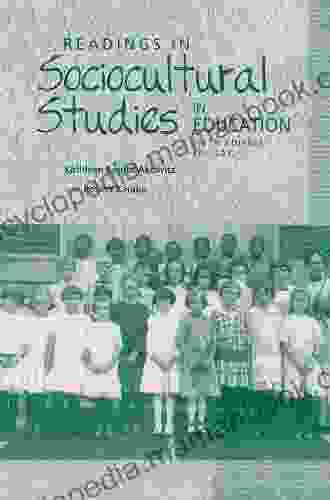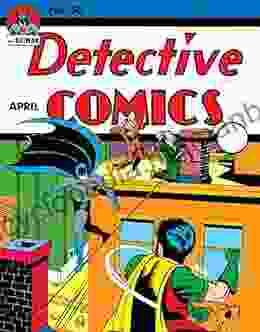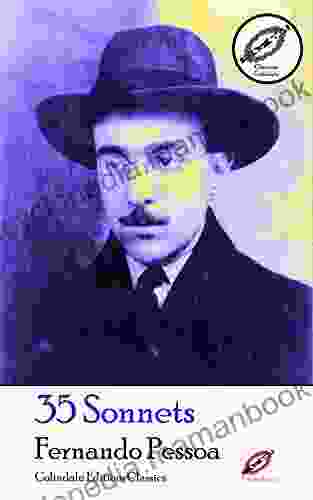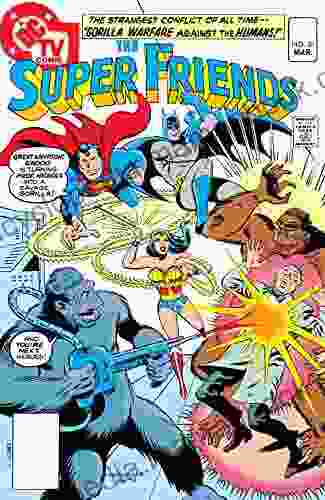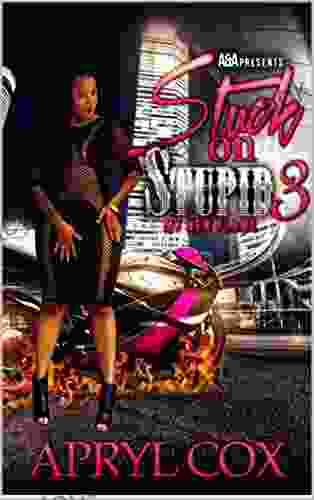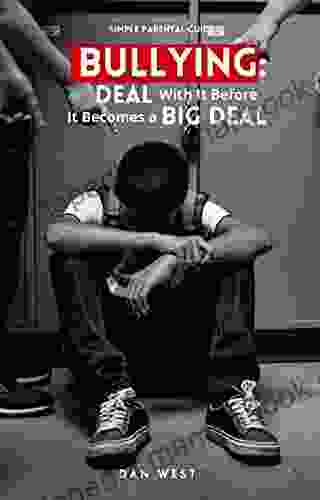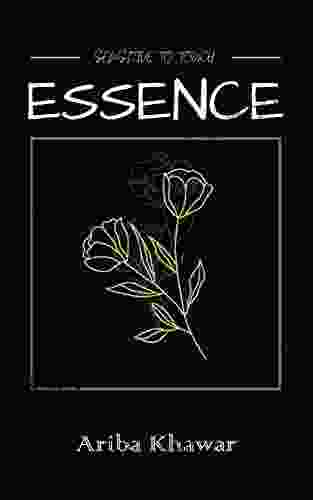Sociocultural Studies in Education: Critical Thinking for Democracy

In an increasingly interconnected and globalized world, it is more important than ever to prepare students to be critical thinkers who can understand and engage with diverse perspectives. Sociocultural studies in education offers a valuable lens through which to examine the complex interplay of culture, power, and identity in educational contexts, and to develop the critical thinking skills necessary for democratic citizenship.
4.1 out of 5
| Language | : | English |
| File size | : | 1911 KB |
| Text-to-Speech | : | Enabled |
| Screen Reader | : | Supported |
| Enhanced typesetting | : | Enabled |
| Word Wise | : | Enabled |
| Print length | : | 266 pages |
The Role of Culture in Education
Culture is a powerful force that shapes our beliefs, values, and behaviors. It influences how we see ourselves and others, and how we interact with the world around us. In education, culture plays a significant role in shaping both the teaching and learning process. For example, teachers' cultural beliefs and values can influence their teaching methods, the curriculum they use, and the way they interact with students. Similarly, students' cultural backgrounds can influence their learning styles, their motivation, and their expectations for school.
Sociocultural studies in education can help teachers and students to understand the role of culture in education, and to develop strategies for working with students from diverse cultural backgrounds. By understanding the cultural contexts of their students, teachers can create more culturally responsive and inclusive learning environments. This can help to improve student engagement, motivation, and academic achievement.
The Role of Power in Education
Power is another important factor that shapes educational experiences and outcomes. Power relations exist between teachers and students, between administrators and teachers, and between schools and communities. These power relations can influence the curriculum, the teaching methods, and the overall school climate. For example, teachers who have more power may be more likely to dominate classroom discussions, while students who have less power may be less likely to participate. This can create an unequal learning environment that limits the opportunities for all students to succeed.
Sociocultural studies in education can help teachers and students to understand the role of power in education, and to develop strategies for challenging and transforming power relations. By understanding the ways in which power operates in schools, teachers can create more equitable and empowering learning environments. This can help to improve student engagement, motivation, and academic achievement.
The Role of Identity in Education
Identity is a complex and multifaceted concept that encompasses our sense of self, our social roles, and our cultural affiliations. Identity is shaped by a variety of factors, including our experiences, our relationships, and our environment. In education, identity plays a significant role in shaping how students experience school and how they learn. For example, students who identify as members of a minority group may face discrimination and prejudice from their peers and teachers. This can lead to negative educational outcomes, such as lower academic achievement and higher dropout rates.
Sociocultural studies in education can help teachers and students to understand the role of identity in education, and to develop strategies for creating more inclusive and supportive learning environments. By understanding the ways in which identity intersects with education, teachers can create more culturally responsive and inclusive curriculum and instruction. This can help to improve student engagement, motivation, and academic achievement.
Sociocultural studies in education is a valuable lens through which to examine the complex interplay of culture, power, and identity in educational contexts. By understanding the role of these factors in shaping educational experiences and outcomes, teachers and students can develop the critical thinking skills necessary for democratic citizenship. These skills include the ability to analyze and critique information, to communicate effectively, and to work collaboratively with others to solve problems.
In a democratic society, it is essential that all citizens have the opportunity to participate fully in public life. Sociocultural studies in education can help to prepare students for this participation by fostering critical thinking skills and by promoting understanding of the complex social and cultural issues that face our society.
4.1 out of 5
| Language | : | English |
| File size | : | 1911 KB |
| Text-to-Speech | : | Enabled |
| Screen Reader | : | Supported |
| Enhanced typesetting | : | Enabled |
| Word Wise | : | Enabled |
| Print length | : | 266 pages |
Do you want to contribute by writing guest posts on this blog?
Please contact us and send us a resume of previous articles that you have written.
 Top Book
Top Book Novel
Novel Fiction
Fiction Nonfiction
Nonfiction Literature
Literature Paperback
Paperback Hardcover
Hardcover E-book
E-book Audiobook
Audiobook Bestseller
Bestseller Classic
Classic Mystery
Mystery Thriller
Thriller Romance
Romance Fantasy
Fantasy Science Fiction
Science Fiction Biography
Biography Memoir
Memoir Autobiography
Autobiography Poetry
Poetry Drama
Drama Historical Fiction
Historical Fiction Self-help
Self-help Young Adult
Young Adult Childrens Books
Childrens Books Graphic Novel
Graphic Novel Anthology
Anthology Series
Series Encyclopedia
Encyclopedia Reference
Reference Guidebook
Guidebook Textbook
Textbook Workbook
Workbook Journal
Journal Diary
Diary Manuscript
Manuscript Folio
Folio Pulp Fiction
Pulp Fiction Short Stories
Short Stories Fairy Tales
Fairy Tales Fables
Fables Mythology
Mythology Philosophy
Philosophy Religion
Religion Spirituality
Spirituality Essays
Essays Critique
Critique Commentary
Commentary Glossary
Glossary Bibliography
Bibliography Index
Index Table of Contents
Table of Contents Preface
Preface Introduction
Introduction Foreword
Foreword Afterword
Afterword Appendices
Appendices Annotations
Annotations Footnotes
Footnotes Epilogue
Epilogue Prologue
Prologue Kliph Nesteroff
Kliph Nesteroff Mimi Wilde
Mimi Wilde Katrina Kahler
Katrina Kahler Eric Bentley
Eric Bentley Robert J Sternberg
Robert J Sternberg Instawise Books
Instawise Books Christian Blake
Christian Blake Pierre Corneille
Pierre Corneille Nolan L Cabrera
Nolan L Cabrera Dean Ornish Md
Dean Ornish Md Radha Chadha
Radha Chadha Ruth Druart
Ruth Druart Richard A Quantz
Richard A Quantz Frank Prem
Frank Prem Harold Abelson
Harold Abelson Scott Meslow
Scott Meslow Alfred De Vigny
Alfred De Vigny Francine Rivers
Francine Rivers M B Henry
M B Henry Fabien Sanglard
Fabien Sanglard
Light bulbAdvertise smarter! Our strategic ad space ensures maximum exposure. Reserve your spot today!
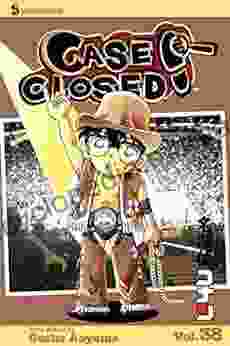
 Samuel BeckettCase Closed Vol 38: On the Ropes - A Thrilling Addition to the Detective...
Samuel BeckettCase Closed Vol 38: On the Ropes - A Thrilling Addition to the Detective... Dave SimmonsFollow ·12k
Dave SimmonsFollow ·12k Ignacio HayesFollow ·12.3k
Ignacio HayesFollow ·12.3k Easton PowellFollow ·10.6k
Easton PowellFollow ·10.6k Dawson ReedFollow ·16.7k
Dawson ReedFollow ·16.7k José MartíFollow ·7.5k
José MartíFollow ·7.5k Carson BlairFollow ·18.1k
Carson BlairFollow ·18.1k Bill GrantFollow ·18.8k
Bill GrantFollow ·18.8k Chad PriceFollow ·3.5k
Chad PriceFollow ·3.5k
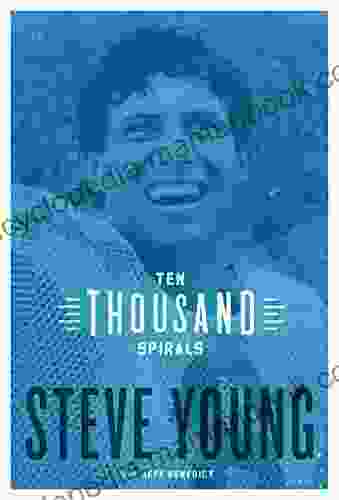
 Fabian Mitchell
Fabian MitchellTen Thousand Spirals: Leccion Inagural Del Curso...
Ten Thousand...
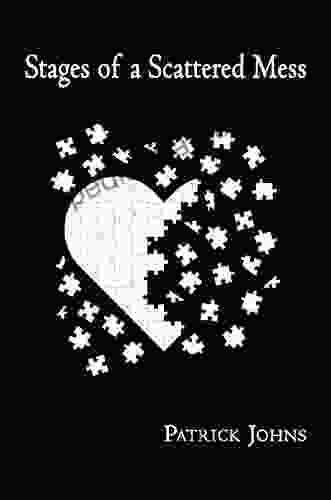
 Howard Blair
Howard BlairThe Captivating Collection of High School Romance Poetry
Love's First...
4.1 out of 5
| Language | : | English |
| File size | : | 1911 KB |
| Text-to-Speech | : | Enabled |
| Screen Reader | : | Supported |
| Enhanced typesetting | : | Enabled |
| Word Wise | : | Enabled |
| Print length | : | 266 pages |


